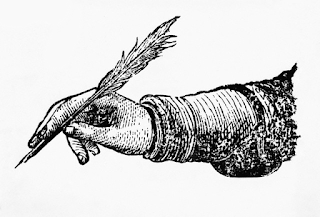Jim Duffy ➤ Excellent article: There is a striking contrast between the funerals of Bobby Storey and John Hume.
Storey's funeral was a triumphalist performance, a glorification of Irish republicanism, that ignored all the rules in place to protect people during the pandemic. The organisers couldn't care less about the impact of their actions on the community they claimed to serve. They endangered them. They endangered the mourners and they showed that their concern about the staff in the NHS was a lie - as they didn't care about the possible impact on their actions on numbers of people ending up in hospital. Irish republicanism cared about nothing but celebrating Irish republicanism.
In contrast, John Hume's funeral was arranged entirely with the concern of the community he served in mind. There was no public display. Crowds were urged to stay away. The attendance was kept low. Social distancing was strictly followed. John and Pat's son wasn't willing to travel back from the US to attend the funeral because he would have had to break quarantine to be there and that would have put others at risk. The whole funeral was arranged to protect people from risk - to avoid some members of the community John Hume came from ending up in hospital.
The Storey funeral was the epitome of "Sinn Féin" - "ourselves". Nobody else and nothing else mattered but republican self-congratulation and promotion. The Hume funeral was entirely focused on others: their needs, their safety, their protection.
It summed up the lives of both men perfectly. Hume spent his life serving others, thinking about others, trying to protect others, and in death continued to do so on his journey to the grave. That is why one man will be remembered with awe and admiration in history, when the other is long forgotten and just a footnote. It will be John Hume's name that will be remembered - with admiration and pride.
Storey's funeral was a triumphalist performance, a glorification of Irish republicanism, that ignored all the rules in place to protect people during the pandemic. The organisers couldn't care less about the impact of their actions on the community they claimed to serve. They endangered them. They endangered the mourners and they showed that their concern about the staff in the NHS was a lie - as they didn't care about the possible impact on their actions on numbers of people ending up in hospital. Irish republicanism cared about nothing but celebrating Irish republicanism.
In contrast, John Hume's funeral was arranged entirely with the concern of the community he served in mind. There was no public display. Crowds were urged to stay away. The attendance was kept low. Social distancing was strictly followed. John and Pat's son wasn't willing to travel back from the US to attend the funeral because he would have had to break quarantine to be there and that would have put others at risk. The whole funeral was arranged to protect people from risk - to avoid some members of the community John Hume came from ending up in hospital.
The Storey funeral was the epitome of "Sinn Féin" - "ourselves". Nobody else and nothing else mattered but republican self-congratulation and promotion. The Hume funeral was entirely focused on others: their needs, their safety, their protection.
It summed up the lives of both men perfectly. Hume spent his life serving others, thinking about others, trying to protect others, and in death continued to do so on his journey to the grave. That is why one man will be remembered with awe and admiration in history, when the other is long forgotten and just a footnote. It will be John Hume's name that will be remembered - with admiration and pride.
➽ Jim Duffy is a writer-historian.

















